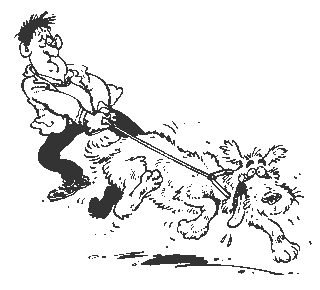Unit 40. Auxiliary verbs - be, have, do
(вспомогательные глаголы - be, have, do)
Main points
- The auxiliaries ‘be’, ‘have’, and ‘do’ are used in forming tenses, negatives, and questions.
- The auxiliary ‘be’ is used in forming the continuous tenses and the passive.
- The auxiliary ‘have’ is used in forming the perfect tenses.
- The auxiliary ‘do’ is used in making negative and question forms from sentences that have a verb in a simple tense.
1. The auxiliary verbs are ‘be’, ‘have’, and ‘do’. They are used with a main verb to form tenses, negatives, and questions.
He is planning to get married soon.
I haven't seen Peter since last night.
Which doctor do you want to see?
2. ‘Be’ as an auxiliary is used:
- with the ‘-ing’ form of the main verb to form continuous tenses
He is living in Germany.
They were going to phone you.
- with the past participle of the main verb to form the passive
These cars are made in Japan.
The walls of her flat were covered with posters.
3. You use ‘have’ as an auxiliary with the past participle to form the perfect tenses.
I have changed my mind.
I wish you had met Guy.
The present perfect continuous, the past perfect continuous, and the perfect tenses in the passive, are formed using both ‘have’ and ‘be’.
He has been working very hard recently.
She did not know how long she had been lying there.
The guest-room window has been mended.
They had been taught by a young teacher.
4. ‘Be’ and ‘have’ are also used as auxiliaries in negative sentences and questions in continuous and perfect tenses, and in the passive.
He isn't going.
Hasn't she seen it yet?
Was it written in English?
You use ‘do’ as an auxiliary to make negative and question forms from sentences that have a verb in the present simple or past simple.
He doesn't think he can come to the party.
Do you like her new haircut?
She didn't buy the house.
Didn't he get the job?
Note that you can use ‘do’ as a main verb with the auxiliary ‘do’.
He didn't do his homework.
Do they do the work themselves?
You can also use the auxiliary ‘do’ with ‘have’ as a main verb.
He doesn't have any money.
Does anyone have a question?
You only use ‘do’ in affirmative sentences for emphasis or contrast.
I do feel sorry for Roger.
WARNING: You never use the auxiliary ‘do’ with ‘be’ except in the imperative.
Don't be stupid!
Do be a good boy and sit still.

5. Some grammars include modals among the auxiliary verbs. When there is a modal in the verb group, it is always the first word in the verb group, and comes before the auxiliaries ‘be’ and ‘have’.
She might be going to Switzerland for Christmas.
I would have liked to have seen her.
Note that you never use the auxiliary ‘do’ with a modal. See Unit 59, Unit 60, Unit 61, Unit 62, Unit 63, Unit 64, Unit 65, Unit 66, Unit 67, Unit 68, Unit 69, Unit 70, Unit 71 for more information on modals.
хостинг для сайтов © Langust Agency 1999-2024, ссылка на сайт обязательна![агентство Лангуст [переход на главную] Агентство Лангуст [переход на главную]](/pic/logo.gif)

